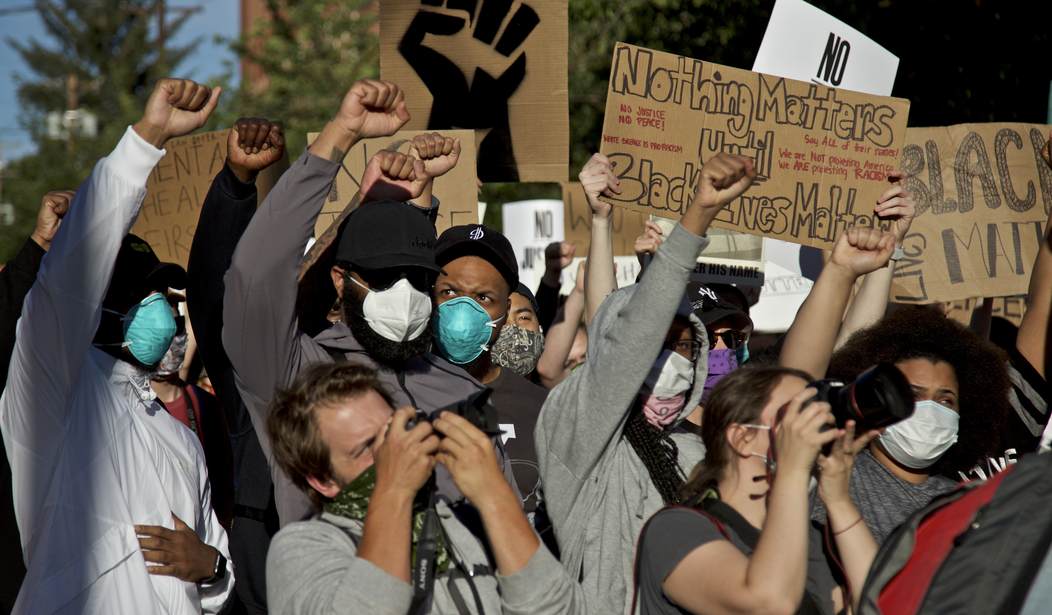As America becomes ever more race-obsessed, I have noticed a rather disturbing trend in how people perceive themselves in light of their ethnicity, skin color, and other immutable characteristics. It is something I have noticed since I was a child, but it seems to be even more prevalent in American society in 2024. Some folks have become so fixated on race that they literally believe it is the most important part about them.
Earlier, I wrote about a report published by the parental rights advocacy group Parents Defending Education (PDE). The report highlighted the Illinois Math and Science Academy’s (IMSA) bias response system, which is basically a mechanism through which members of school staff and students can snitch on one another for perceived slights and offenses related to race, gender, sexuality, and other traits.
PDE obtained information on this program through a Freedom of Information Act request. The report included various reports submitted through the program. One of them included an entry from Adrienne Coleman, the school’s Director of Diversity, Equity, and Inclusion, who detailed the challenges she faced as a Black woman at the school. She wrote that “It is sometimes difficult to be a Black person at IMSA” and listed a series of issues she dealt with at the school.
At one point, she wrote: “Walk a mile in my shoes, have a conversation with me, do not judge me, erase the stereotypical perspectives that you have of me, get to know me, see my ‘Blackness’, and understand that it is the most important part of my identity!’”
That last part threw me. While I would not posit that the majority of Black Americans believe their skin color or cultural lineage was the most important part of their identities, I have met plenty throughout my life who would fit this description.
Before I explore this, I will note that I am not aware precisely what Coleman meant when she referred to her “Blackness.” For some Black Americans, this might refer strictly to skin color. But for most, it is a reference not only to our ethnicity but to our culture and history as Black Americans who descended from slaves. It will be both to which I refer in this piece.
For starters, the notion that my “Blackness” is the most important part of who I am is a foreign one. Sure, my culture and its history are integral parts of who I am, and it is something I am not afraid of discussing, nor do I have any problem identifying as a Black American.
But this is only part of my identity. Ultimately, my identity is in Jesus Christ. But I am also a writer, journalist, political commentator, nerd, former musician, lover of history, and a laundry list of characteristics. These are all things that shape who I am as a person.
I doubt that folks like Coleman see the tragic irony in their belief that their race is the most important part of who they are. Do you know who else would have agreed with her? Bull Connor, David Duke, those who enslaved Africans, and others who propped up Jim Crow laws after the “peculiar institution” was abolished.
Racists cannot, or will not, see beyond one’s ethnicity. To them, those of a different race, which is a social construct, have no other traits that are worth considering. They see a Black person and nothing more. The Blackness is the most important part of those they detest.
Progressives often like to speak about internalized racism, often applying it to minorities who do not subscribe to their ideas on race. However, I can’t think of a better example of internalized racism than pointing to one’s ethnicity as the most important part of who they are. This is precisely how the most virulent racists in the country would prefer that we see ourselves.
Believing one’s race is the most important part of their identity is the very definition of self-internalized racism. This is precisely what racists wanted us to believe about ourselves – their ultimate objective was to get us to see us as Black folks and nothing more.
Additionally, there is a certain level of idolatry that comes with propping up one’s skin color, culture, or ancestry as the most important parts of who they are. As stated previously, my ultimate identity is in Christ – our Creator. Putting anything above that is akin to worshipping a false God, which I am unwilling to do.
This is not to say that one can’t be proud of their culture, history, and even their skin color. I dig my pecan tan. I love reading about Black American history. These things are an important part of who I am as a person – but they are not the most important.
Unfortunately, I am seeing far too many people of all races shifting toward the type of thinking that Coleman exhibited. In today’s political landscape, the elites in government, media, education, and other important institutions have been weaponizing race to divide us to great effect. Currently, this is a mostly online phenomenon. In real life on the ground, most people of all backgrounds are getting along just fine. However, my fear is that those manipulating the public are beginning to succeed in their effort to make real-life look more like what the airwaves and interwebs are portraying. Hopefully, we will wake up before it’s too late.














